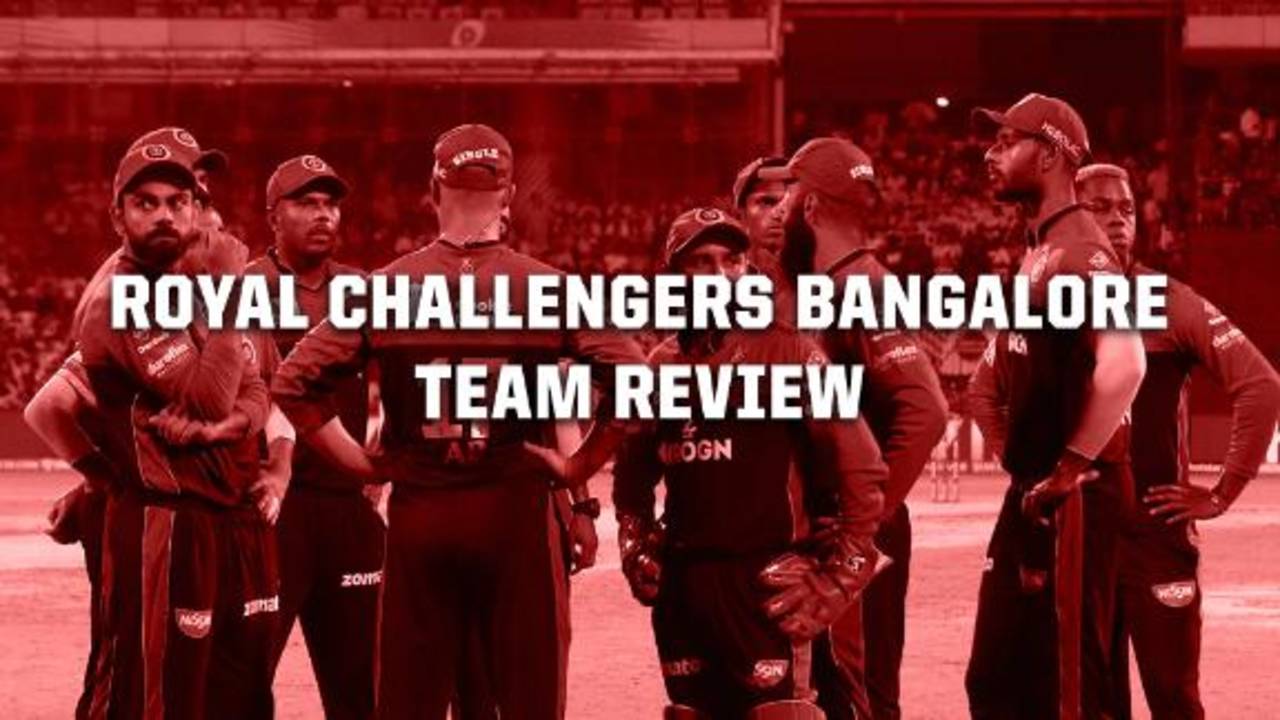The Royal Challengers Bangalore might be thinking they could've been in the position the Delhi Capitals find themselves in. Placed second with seven wins in ten matches, the Royal Challengers lost the next four on the bounce to finish outside the top two, and, therefore, had to play an Eliminator instead of having a second crack at the final. In the Qualifier, they ran into the Sunrisers Hyderabad, who
knocked them over for a second time in less than a week to end their campaign. Still, it was some sort of an improvement for the Royal Challengers, who entered the playoffs for the first time since 2016.
He has retired from international cricket and probably plays only for three months a year. At 36, surely his reflexes must be slowing down and the lack of match time should be a hindrance, right?
AB de Villiers busted these myths, scoring 454 runs in 14 innings, the second-best for the Royal Challengers this season. He also kept wickets in 13 out of the 15 games, thereby proving he could overcome his back issues with proper management. That he could strike them at 158.74 despite having his hands tied at certain times because of an inexperienced lower-middle order told you a story. Four out of his five half-centuries came in a winning cause.
Injuries hampered them at different times. Their costliest signing at the auction -
Chris Morris - missed the Eliminator due to a quadricep injury. He had earlier missed the first four games due to a side strain. His absence in the Eliminator left the Royal Challengers relying on Mohammad Siraj and Navdeep Saini at the death. Moeen Ali, who came in for him, bowled just one over in a crunch game, where they fielded four spin options.
Dale Steyn, an all-time great, and
Umesh Yadav, a seasoned India bowler, didn't have a memorable tournament. Steyn was a pale shadow of the menacing fast bowler he once was, while Umesh, who should've been an automatic pick, was dropped after just two games. That he wasn't a shoo-in even when Saini missed two games at the back-end due to a split webbing showed how little confidence the team management may have had in him.
Aaron Finch, who was specifically roped in to ease the dependency on de Villiers and
Virat Kohli, had a rough season, with just one half-century in 12 games. He managed three fifty stands with Devdutt Padikkal, but that was no consolation.
They also couldn't find enough lower-order firepower, which meant Kohli had to play the role of an accumulator for much of the season.
Kohli's middle-overs (6-15) strike rate of 110.08 was the lowest among batsmen who made at least 200 runs in those overs.Bowl inside the powerplay? No problem. Control the middle overs? Yes, sir. Can you try bowling at the death? Bring it on. Chahal was all this and much more for Kohli, delivering key breakthroughs at different times, along with their other key performer Washington Sundar, who proved he isn't just a powerplay pony. Sundar finished with a tournament economy of below 6.00. The pair delivered in unison the kind of success Chahal and Kuldeep Yadav enjoyed in tandem for the national side during a period between 2017 and 2019.
Devdutt Padikkal warmed the bench last year, with Parthiv Patel preferred over him. He broke the door down with his performances in domestic cricket and didn't let the pandemic-induced break disturb his rhythm. His 473 runs were the most for a Royal Challengers batsman this season. This tally is also the most by an uncapped Indian player in his debut season. He struck five half-centuries, but he'll do well to work on his middle-overs game for next season. He has also proven to be a potential retention material going forward.
For all their good work at the auction, the Royal Challengers lacked a seasoned finisher. Whether Ali could've been that man, we wouldn't know because he hardly got opportunities. If he isn't, the side needs a finisher of the pedigree of Hardik Pandya or Kieron Pollard to take the load off de Villiers. How about Fabian Allen, of course assuming the Sunrisers let him go?

